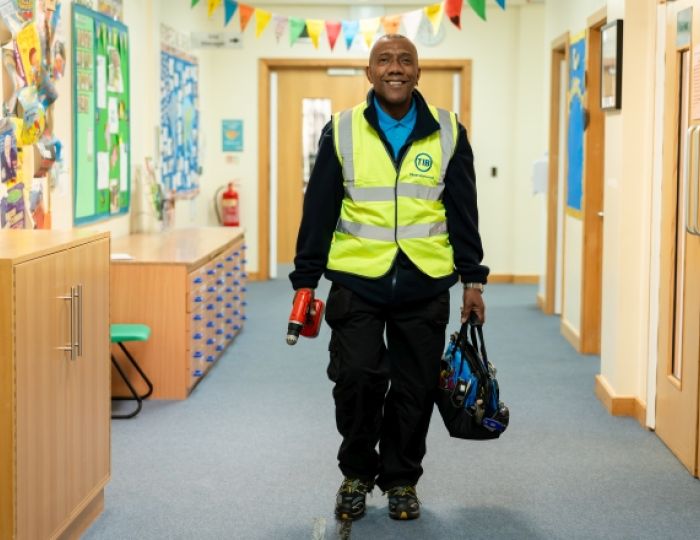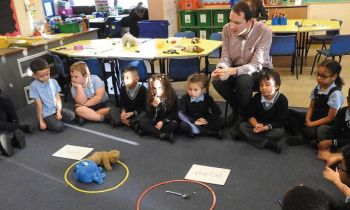Gillibrand Primary School is situated in Chorley, Lancashire. We currently have 210 pupils on roll, were graded Outstanding by Ofsted in 2016 and continue to seek ways in which we can improve, develop and build on our success.
We’re part of a 14-strong cluster of schools in the Chorley area. At one of our regular cluster meetings, the suggestion was put forward to embark on a blogging project in conjunction with the former headteacher (and as @DeputyMitchell, noted tweeter), David Mitchell.
My computing subject leader, Mr Thomas, and I decided that blogging could be a new and exciting way of inspiring and motivating our children to write – not just in school, but at home and for a larger audience. I could see that the potential of such a project could be huge for everyone across the school, while helping to further raise our pupils’ standards of writing.
Mr Thomas proceeded to undertake training for our whole school blogging project with Deputy Mitchell in September this year, and it’s marked the start of an amazing journey. Our staff have embraced the project, working hard to ensure that its aims and intentions are accurately translated to the children.
All of us at the school believe it will have a transformative effect on our children’s attitudes to writing – each of our classes are now blogging regularly, uploading posts that variously consist of poems, factual articles and stories.
I’ve been further amazed and impressed at the power of Twitter to support children in not only their learning, but also their hunger to produce writing and share it with others. We’ve been able to establish links with other schools via the blog; they comment on our work and we comment on theirs.
The children have managed to attract positive comments from people across social media – including a tweet from author Anthony Horowitz, who complimented one of our pupils on some artwork she’d created inspired by his novel Stormbreaker. As one of our pupils commented to us, “8 billion people could read my writing!”
As a headteacher, I can’t measure the project’s impact in terms of data just yet, but I can see the effect it’s already had on the children. At a recent school disco, an excited Year 5 child thanked me for commenting on her writing, and told me how she’d edited it and added more to make it even better – wow!
As the project continues to grow, we’re seeing more parents and relatives leaving comments on their children’s written work, which in turn the children are replying to. Even people as far away as Australia have left comments on the blogs, which has motivated the children to further edit and improve their work.
Children wanting to write, parents encouraging that writing – this can only be a good thing. I’m looking forward to reporting on the long term impact the project has had, and seeing just how much our children’s writing has improved as a result of it.
Ashley Clayton is the headteacher of Gillibrand Primary School; you can read the children’s blogs for yourself at gillibrandblogs.net.










